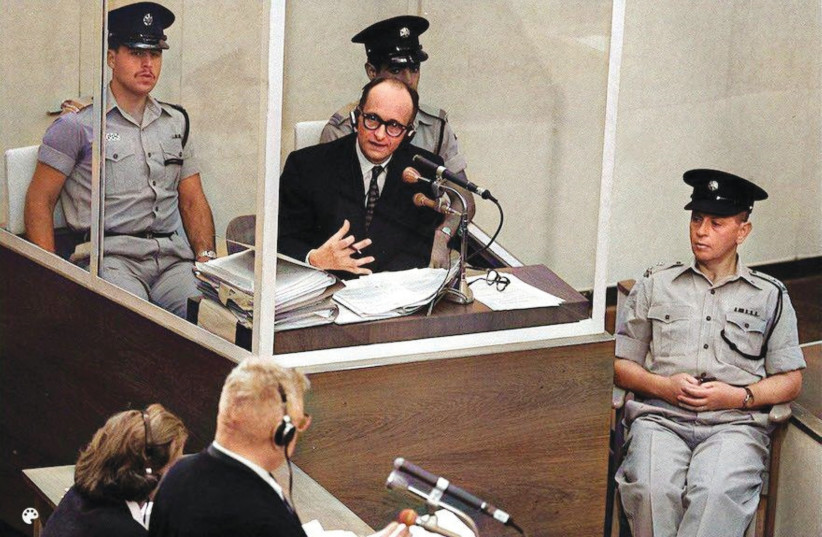Former Supreme Court justice Gabriel Bach, a member of the team that prosecuted Adolf Eichmann, died on Friday at the age of 94.
Bach’s career spanned 46 years from 1951 to 1997, including 31 years in the Military Advocate General’s Corps and in the state prosecutor’s office, 13 of them from 1969 as state prosecutor and deputy attorney-general, followed in 1982 by 15 years as a Supreme Court justice where he was considered a liberal judge.
Bach was born in Germany in 1927 as Gert Gabriel Bach, and grew up in Berlin under Nazi rule. In October 1938, a month before Kristallnacht, the family fled Germany for Amsterdam. Bach used to say that he was literally “kicked out of Germany” by a platform guard who kicked him onto the train that took his family to Amsterdam.
In 1940, he and his family boarded a ship for Palestine, celebrating his bar mitzvah on the ship.
Bach joined the pre-state Hagana defense force at the age of 16. After the establishment of Israel’s independence, he studied law at University College London, before returning to launch his legal career.

In the State Prosecutor’s Office, Bach was involved in two high-profile cases: the Kasztner libel trial and the Eichmann trial.
The former involved attorney and journalist Rudolf Kasztner, who was accused in 1953 of collaborating with the Nazis during the Holocaust in his native Hungary.
After the Tel Aviv District Court ruled that Kasztner had “sold his soul to the devil” when he cooperated with the Nazis in an attempt to save Jews, Bach prepared the government’s appeal of the verdict against him.
The Supreme Court accepted the appeal that Bach submitted in 1958 and cleared Kasztner, who was murdered a few months before the ruling.
In the Eichmann case, Bach was appointed the legal adviser to “Bureau 06” – the special police unit in charged with investigating one of the major facilitators of the Holocaust.
Along with attorney-general Gideon Hauser and Ya’acov Bar Or, Bach prepared and conducted the prosecution of the Nazi war criminal, which ended in Eichmann’s conviction and execution.
In his memoirs, Bach wrote: “When he, the prisoner, was led to my room, I saw myself for a moment as a child with my family in Germany, there on the platform, and a chilling thought passed through my mind – how easily it could have been a trap. It was not easy to keep my face neutral at that moment, a poker face.”
Bach was not only satisfied with the guilty verdict, but also with the death sentence for Eichmann.
“My opinion was that in cases of crimes against humanity and mass murder, the death penalty must be applied,” he told Ynet last year.
A longtime resident of Jerusalem, Bach is survived by his wife Ruthie and many children and grandchildren.
